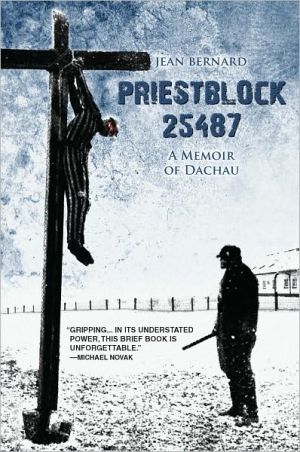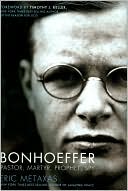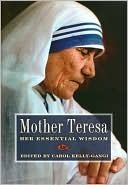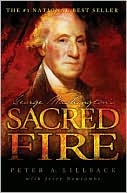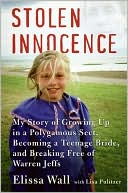Priestblock 25487: A Memoir of Dachau
In May 1941, Father Jean Bernard was arrested for denouncing the Nazis and deported from his native Luxembourg to Dachau's "Priest Block," a barracks that housed more than 3,000 clergymen of various denominations (the vast majority Roman Catholic priests).\ Priestblock 25487 tells the gripping true story of his survival amid inhuman brutality and torture.\ This inspiring book, originally published in Germany in 1963, was adapted into the award-winning film The Ninth Day in 2004.\ Now...
Search in google:
In May 1941, Father Jean Bernard was arrested for denouncing the Nazis and deported from his native Luxembourg to Dachau's "Priest Block," a barracks that housed more than 3,000 clergymen of various denominations (the vast majority Roman Catholic priests). Priestblock 25487 tells the gripping true story of his survival amid inhuman brutality and torture. This inspiring book, originally published in Germany in 1963, was adapted into the award-winning film The Ninth Day in 2004. Now translated into English for the first time, Priestblock features a Preface by Seán Cardinal O'Malley, Archbishop of Boston, and an Introduction by Robert Royal. Tim Johnson - Fr. John I. Today's Catholic (Indiana) I found this compelling book hard to stop reading. A perfect Good Friday reflection, it portrays some of the worst cruelty of humanity. From crucifixion to concentration camps, both make us shudder with the weakest aspects of the human character... One wonders about the silence of the people, perhaps fearing for their own lives. But then again, in our own day, why are we not more vocal against the culture of death that pervades our own society? Why do we keep silent or say so little?
Preface Sean Cardinal O'Malley O'Malley, Sean CardinalIntroduction Robert Royal Royal, RobertIn Prison 3Arrival at Dachau 9The First Two Weeks 16In the Main Camp 26First Mass in the Camp 39Recollections from the First Few Months 42The "Good Times" Come to an End 53Winter Approaches 61Christmas 1941 72Ten Days' Leave and My Return to Dachau 78"Transport Commando Praezifix" 91Easter Week 1942 112Hunger 118Visitors in the Camp 132At the End of Our Strength 135The Infirmary 142Dead End 155Renewed Hope 157Released 168Biographical Note 173
\ Catholic News ServiceFather Jean Bernard (1907-1994) was a prisoner in the Dachau concentration camp from May 1941 to August 1942. "Priestblock 25487" was originally published in a newspaper series in 1945 and was loosely adapted into the acclaimed 2004 German film, "The Ninth Day." \ \ Father Bernard's factual narrative is direct and explicit reportage and as such it gives a brutally honest recitation of what it was like to endure the clergy barracks of Dachau. It is difficult to imagine how people managed to endure these depths of misery: physical and emotional torture, starvation, disease, unceasing cold, hard physical labor and merciless guards.\ —Rachelle Linner\ \ \ \ \ Fr. John I. Intermountain CatholicBooks about World War II are many. Some are very good; others show a noticeable lack of research. One crossed my desk lately that is so small, so personal, and so profound it deserves wide readership...\ \ Most moving in this slender softback book are the few times when the men in "Priestblock" get tiny shreds of the Holy Eucharist smuggled to them. They guard it, they share it... How can a reader not be moved?\ \ It might take a hasty reader just a day to read "Priestblock 25487," but hastily is not how this book should be read. It should be treated as a meditation, even something read again and again.\ —Barbara Stinson Lee\ \ \ Fr. John I. The Catholic Sun (Phoenix)Fr. Jean Bernard, in his book Priestblock 25487: A Memoir of Dachau, demonstrates the necessity of a brutally truthful recounting of his time at the Nazi concentration camp as a way of remembering the sin and grace that lived there...\ \ In opposition to the camp's evil, Fr. Bernard and his brother priests found strength in the Eucharist... The kinship many of the priests felt with the early Christians is striking... a portrait develops of beautiful and simple charity, the stuff of saints.\ \ He wrote the memoir in a few fevered days after leaving Dachau, and its attention to detail and fact leave the reader with a historical document detailing what it means to be persecuted for the faith.\ —Andrew Junker\ \ \ \ \ Fr. John I. The Inland RegisterPriestblock 25487 is a moving account of the cruel place where more priests were gathered in one place than anywhere else in all the history of the world. It is well worth reading.\ Fr. Tom Caswell\ \ \ \ \ Fr. John I. Today's Catholic (Indiana)I found this compelling book hard to stop reading. A perfect Good Friday reflection, it portrays some of the worst cruelty of humanity. From crucifixion to concentration camps, both make us shudder with the weakest aspects of the human character...\ \ One wonders about the silence of the people, perhaps fearing for their own lives. But then again, in our own day, why are we not more vocal against the culture of death that pervades our own society? Why do we keep silent or say so little?\ —Tim Johnson\ \ \ \ \ Fr. John I. Today's Catholic (San Antonio)With the election three years ago of a German pope, many books and articles have questioned the role of the Catholic Church in Nazi Germany. The recent translation of Priestblock 25487 provides a firsthand report of the cruelty and evil inflicted upon the thousands of clergy, most of them Roman Catholic priests...\ \ The simply stark, honest and excellently penned account of his time at Dachau is not for the faint of heart. The cruelty of the Nazi regime is beyond comprehension. Just as incredible is the gift of the friendship and faith-filled lives the clergy in Dachau shared. Understanding the gift of priesthood and Eucharist comes through to the Catholic reader... It's a book that will remain with you as you reflect upon its message.\ —Patsy Pelton\ \ \ \ \ Library JournalThis American edition of Father Jean Bernard's recollections of his experiences as a political prisoner in Dachau from May 1941 to August 1942 was first published serially in the Luxemburger Wortin 1945 and coincides now with the release of the movie adaptation (The Ninth Day). The text consists of snippets of memories, creating a disjointed result. There are a series of impressions but no connection to the greater time period or event. Overall, the book sheds minimal light on the experiences of priests in Dachau. The larger problem, however, is Robert Royal's introduction, which makes no distinction between internment for political reasons and for reasons of ethnicity, a distinction that mattered especially with regard to Father Bernard, who might never have been released had he been a Jew or a Gypsy. Further, the introduction presents the memoir as proof that the Catholic Church was opposed to and suffered under Hitler when the historical facts do not support this stance. As the volume does not contribute to the study of World War II or the Holocaust, it is an optional addition to libraries.\ —Melissa Johnson\ \
